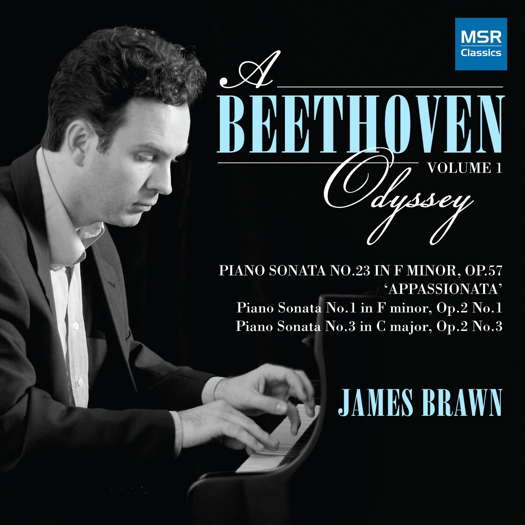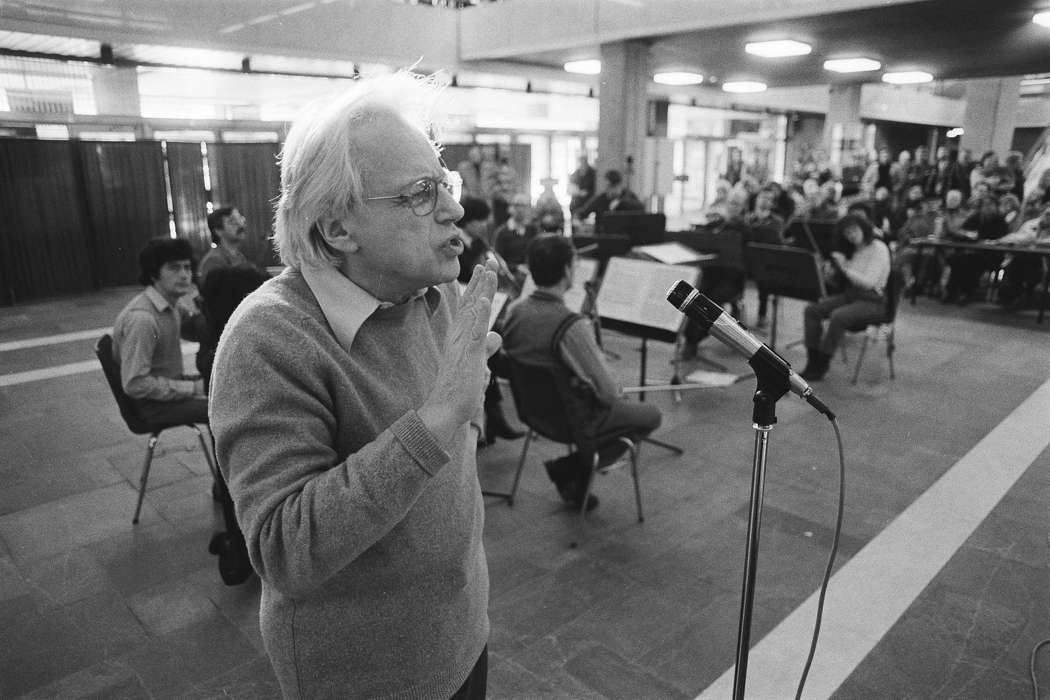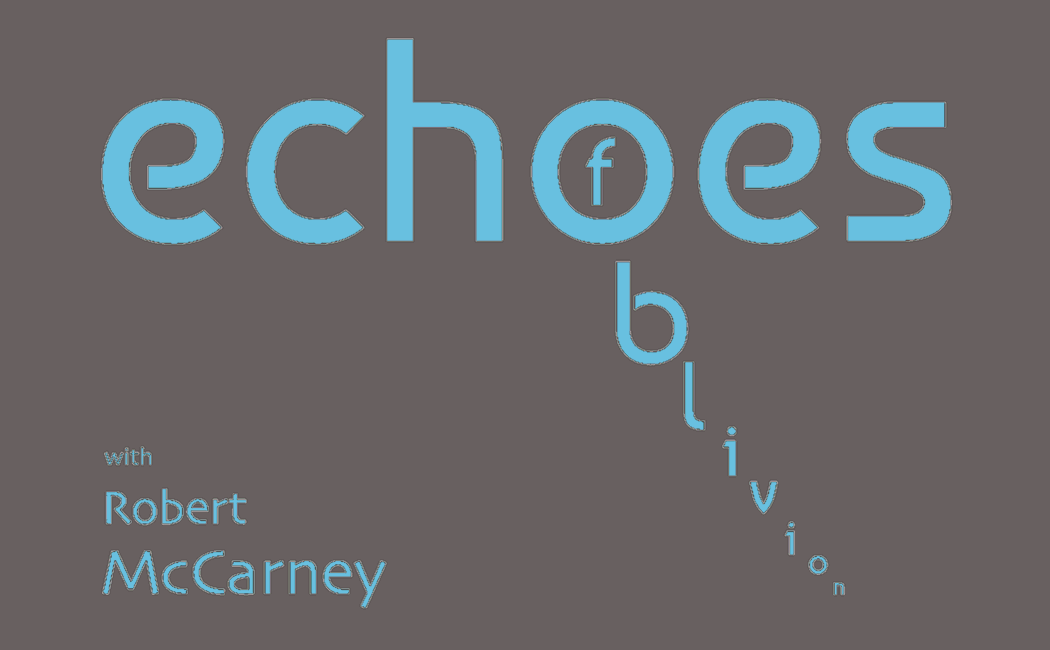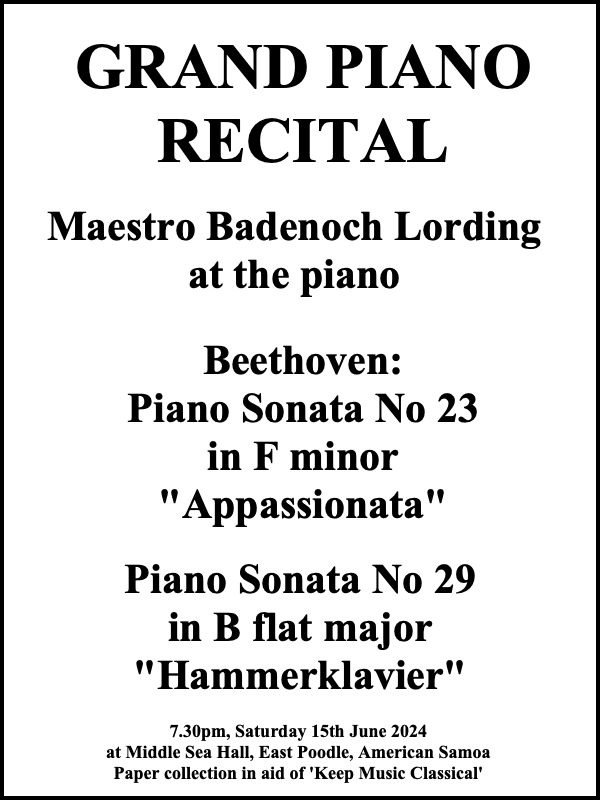- Janáček
- Orazio Vecchi
- Bartholomäus Ringwaldt
- Peter Katin
- Cold Blue Music
- Bowerman Charitable Trust
- Antony Gray
- Julie Smith Phillips
 DISCUSSION: John Dante Prevedini leads a discussion about Music and the Visual World, including contributions from Celia Craig, Halida Dinova and Yekaterina Lebedeva.
DISCUSSION: John Dante Prevedini leads a discussion about Music and the Visual World, including contributions from Celia Craig, Halida Dinova and Yekaterina Lebedeva.
 SPONSORED: CD Spotlight. Masterfully Controlled - James Brawn's Beethoven Odyssey impresses Andrew Schartmann.
SPONSORED: CD Spotlight. Masterfully Controlled - James Brawn's Beethoven Odyssey impresses Andrew Schartmann.
All sponsored features >>
Coming soon, maybe ...
I was unexpectedly contacted by a piano teacher last week and as a result I ended up asking him why, in my experience, concert programmes are so disappointingly predictable and repetitive and why so many young musicians seem to have little interest in expressing their personality through their programme choices and likewise seem to show scant enthusiasm for playing the music of their peers or modern music in general. Thus giving listeners the impression that classical music is a dead artform rather than a vigorously alive one informed by a long tradition.
To give him his due he candidly answered that as most teachers don't continue to do the necessary study which would enable them to teach the music and specifically relevant playing techniques of the twentieth and twenty-first centuries, they tend to play safe and only teach their students what they themselves learned and feel comfortable with, namely, the oh-so familiar classics of the piano repertoire: music of the dead, usually long dead.
That said, it still doesn't explain why more students don't say to their teachers something like:
Maestro, Chopin is all well and good but is there any chance we could study Ligeti's Études?

György Ligeti (1923-2006) in 1984
Or maybe, from what he told me, I am meant to infer that these kinds of requests are actually very common but are met by equally frequent responses along the lines of 'Oh that's too difficult for you (where you in this case means me), maybe next year.'
People will have their opinions about whether or not this state of affairs is acceptable, justified or desired. All I will say is that as someone who has worked in education in three distinct countries I have worked with many driven, dedicated and tireless teachers in sometimes very challenging and unsupportive systems over the decades, but at the same time I am absolutely no stranger to an appallingly unabashed degree of apathy and sheer laziness among academics when it comes to the essential need for continuous learning and the re-evaluation, when necessary, of treasured, oftentimes untested, methods, knowledge and opinions. Apathy and laziness that only exist because they are permitted by the institutions and education systems that employ these teachers.
Whatever the reality and its accompanying ethics may be, these reflections bring me by a commodius vicus of recirculation to one conclusion. If I am not hearing, or ever likely to, music performed in concerts that I would desperately like to, well then I should just invent my own imaginary ones. Which is what I intend to do from hereon. The great advantage of an imaginary concert is that I can mix solo, chamber, orchestral and operatic repertoire in a way that is just not feasible in the real world. On the other hand one enormous disadvantage is that with the limits only set by my imagination, choosing what to put on a concert programme is no easy task. For that I will need to take myself off to Mount Oblivion and penetrate its darkest deepest woods and wait for however long it takes for some inspiring echoes to reveal themselves.

Copyright © 9 June 2024
Robert McCarney,
León, Spain




